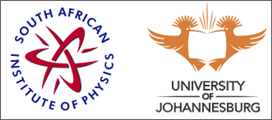Speaker
Apply to be<br> considered for a student <br> award (Yes / No)?
No
Level for award<br> (Hons, MSc, <br> PhD)?
N/A
Abstract content <br> (Max 300 words)<br><a href="http://events.saip.org.za/getFile.py/access?resId=0&materialId=0&confId=34" target="_blank">Formatting &<br>Special chars</a>
I will present recent results about clusters of galaxies from the Hubble Space Telescope Multi-Cycle Treasury program named the Cluster Lensing and Supernovae with HST Survey (CLASH). Clusters of galaxies have been long known to be held together by enormous amounts of dark matter, well in excess of any normal, light-emitting matter present. Observational cosmology, based on such diverse datasets such as the distribution of galaxies in the universe and the power spectrum of the cosmic microwave background, has shown that dark matter is likely to be made up of relatively heavy, weakly interacting particles: cold dark matter (CDM). Supernova studies revealed the expansion of the universe is accelerating, and now we have a current best hypothesis for the universe called Lambda-CDM. Lambda-CDM makes predictions about how dark matter should be distributed in the gravitational potential of a cluster of galaxies. I will discuss how our Hubble Space Telescope lensing data for 25 clusters, representing 750 hours of satellite time, together with ground-based visible light images from the Subaru telescope, X-ray data from the Chandra X-ray Observatory and the XMM-Newton Observatory test the current paradigm. Gravitational lensing reveals where any gravitating matter is; the X-ray observations reveal where the majority of the baryonic matter is. Together we arrive at a complete picture of normal matter and dark matter in clusters of galaxies. I will relate the results of this work to cosmological results from Planck and discuss the next steps in our project.
This talk presents the results of the CLASH collaboration, including the efforts of over 50 individual researchers in over 20 countries; the speaker acknowledges funding support from NASA.
Would you like to <br> submit a short paper <br> for the Conference <br> Proceedings (Yes / No)?
No

